Martin from Carbonfact here. We’ve just released a new product view: Process steps. This new feature provides granular insights into the environmental footprint of every process step in your products’ life cycle, from fiber production to finishing. Imagine understanding the exact impact of weaving, or the energy and heat consumed during wet treatment.
Take the product tour:
I know exactly what you’re thinking: “This is cool, but I don’t have the data.”
The cool thing about the new feature is that you don’t need all of the data to get started. We’ll consolidate and import all your primary data, and then match it to our extensive database of supply chain blueprints.
Not only does this precisely identify carbon hotspots but it also provides a detailed framework to streamline your decarbonization efforts directly at the source of the impact.
Take a product tour or keep reading!
Blueprints: Complete insights with incomplete data
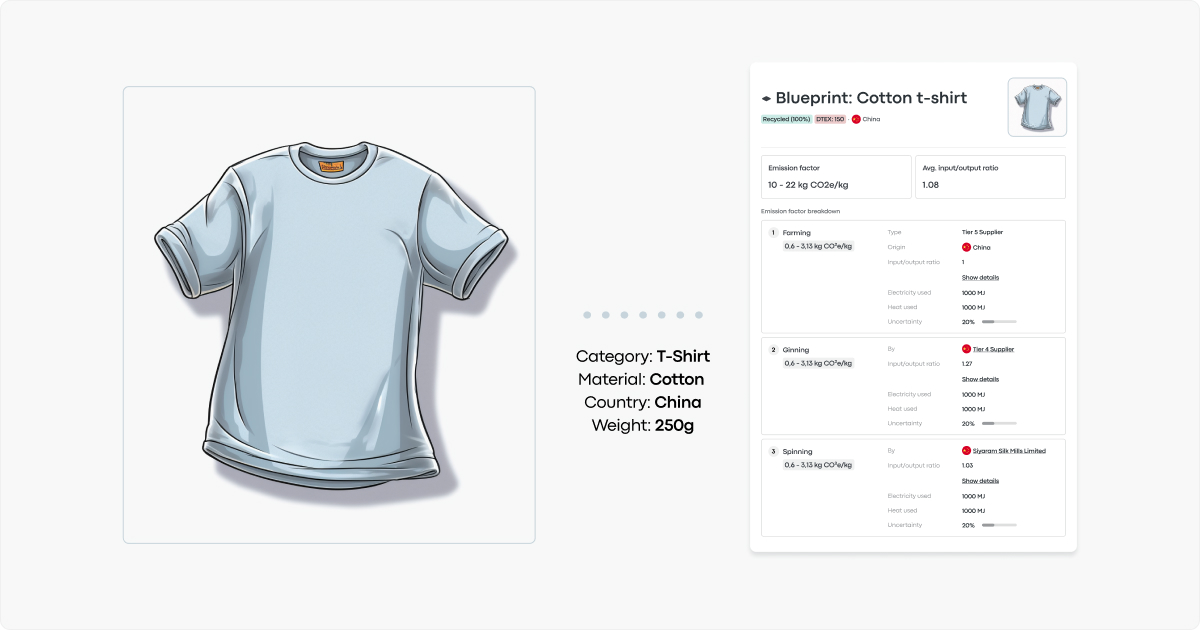
A supply chain blueprint is a template with pre-populated information regarding the value chain for a specific product category. With blueprints, we’re able to perform immediate footprint calculations, even when your data is incomplete. Once you upload your product data our algorithm matches the closest blueprint, and you can gain detailed insights into the supply chain of your products.
.jpg?width=1200&height=630&name=Process%20steps%20-%20Blue%20prints%202%20(1).jpg)
For example, if you have denim jeans made from organic cotton assembled in China, we would apply our “Organic Cotton Denim Jeans” blueprint to the product, which comes with presets for fiber production, textile formation, finishing, etc. We have a rich database of blueprints thanks to the 150+ fashion brands and manufacturers already using our product.
Uncover hotspots in your supply chain
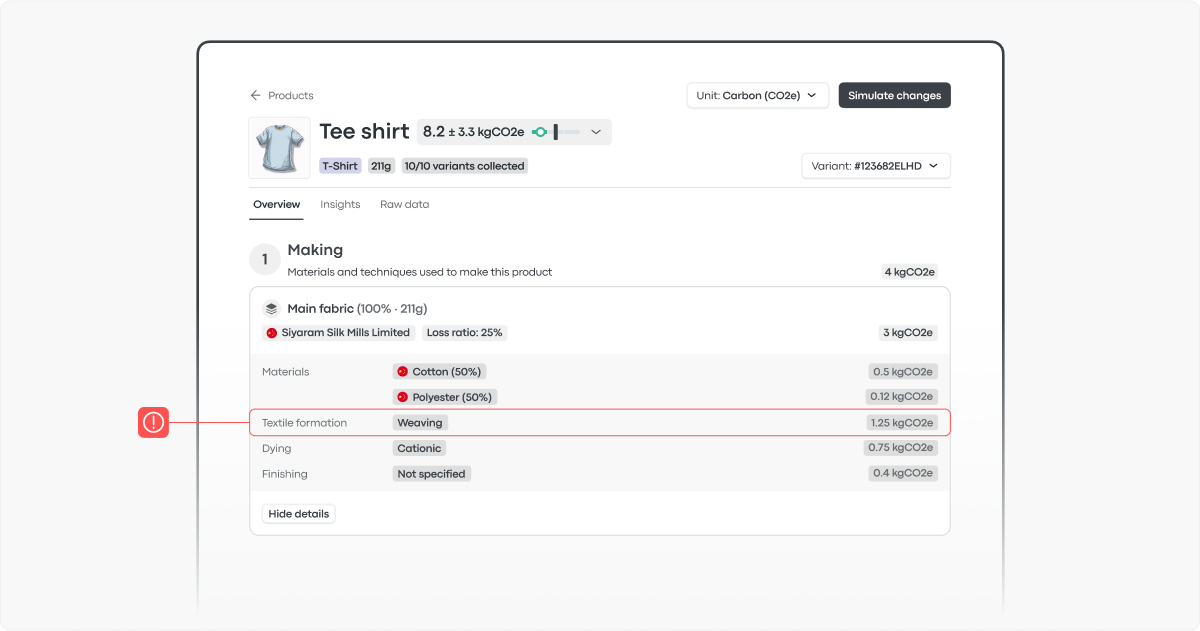
With this much insight, you can now make data-driven decisions and look into alternative processing methods for your product. For example, investing in renewable energy for your textile formation supplier could reduce your footprint by 10%.
Tailored blueprints and emission factors
.jpg?width=1200&height=630&name=Process%20steps%20-%20Tailored%20(1).jpg)
If you're using traceability software or have primary data from material production, we can now incorporate your data at a more granular level. We automatically create tailored blueprints and emission factors for unique supply chains or advanced materials. For example, if you have data on the energy consumption during the weaving step for a specific supplier, we can incorporate this information.
Data sources - 100% transparent
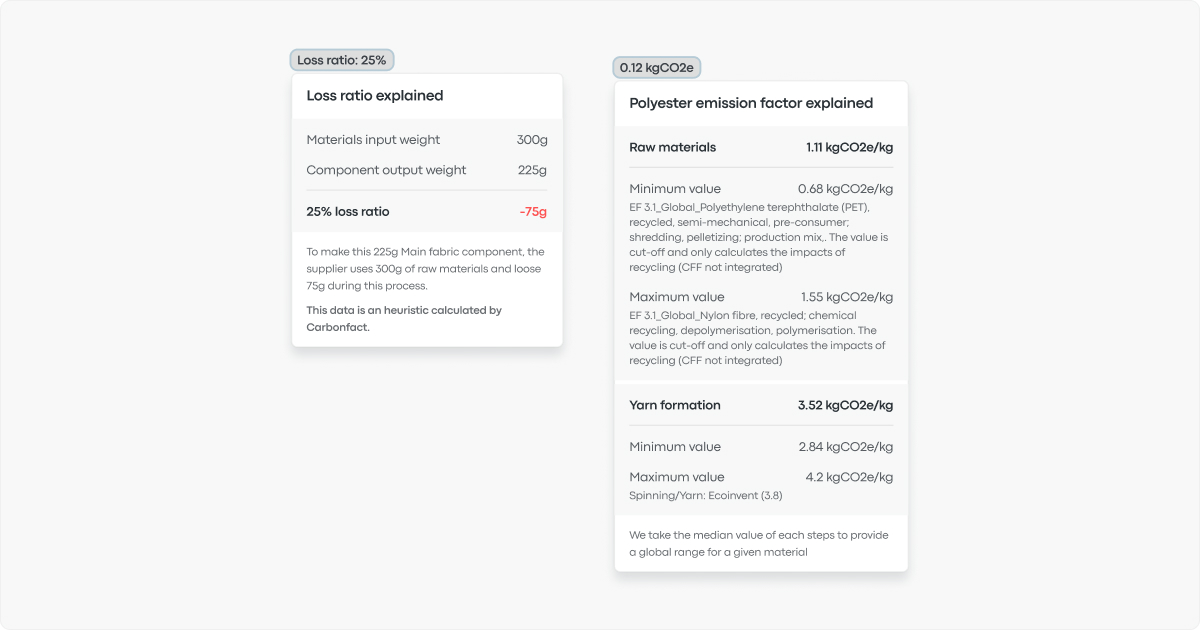
In every process step, you can easily trace the data source and its last update. Data can come from various sources, including automatic synchronization with your PLM, ERP, or traceability systems, manual ingestion through an xls file provided by you, smart data gap filling using Carbonfact's database and heuristics, custom brand-specific rules based on your data, and secondary databases like EcoInvent.

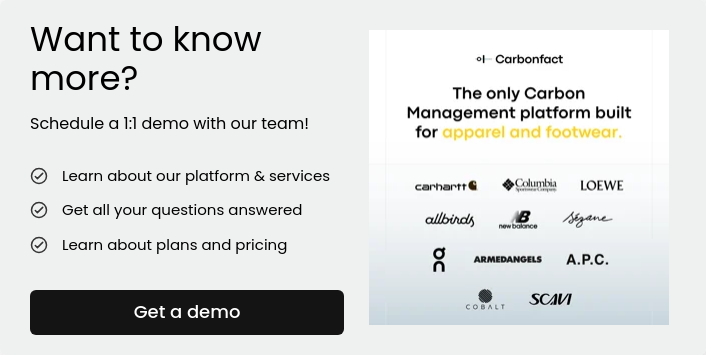




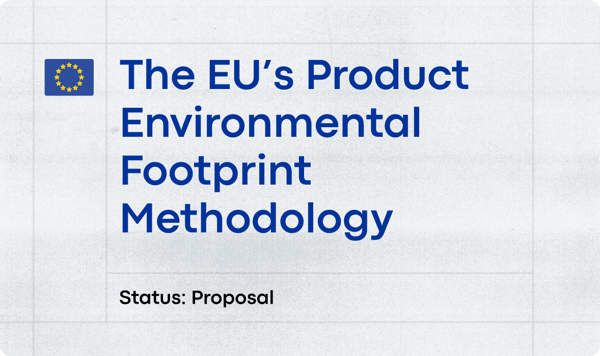
 Lidia Lüttin
Lidia Lüttin

![[Guide] Carbon accounting for fashion, textile, apparel, and footwear companies](https://www.carbonfact.com/hs-fs/hubfs/CA%20-%20Opt1.png?width=600&name=CA%20-%20Opt1.png)
 Angie Wu
Angie Wu